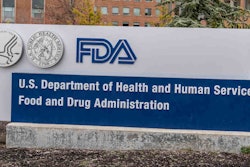
All hospitals should try to improve how antibiotics are prescribed and used under new recommendations on how to prevent the spread of a drug-resistant pathogen.
A group of five medical organizations make this recommendation in the updated version of “Strategies to Prevent Methicillin-Resistant Staphylococcus aureus Transmission and Infection in Acute Care Hospitals.” The document, published in the journal Infection Control & Hospital Epidemiology, represents the latest thinking on the prevention of methicillin-resistant Staphylococcus aureus (MRSA).
MRSA accounts for around 10% of hospital-associated infections in the U.S. The infections are caused by a type of Staphylococcus bacteria that is resistant to many of the antibiotics typically used to tackle that genus of pathogen.
The publication of the new strategy document follows a period in which positive trends seen before the pandemic reversed, as Dr. David Calfee, senior author of the updated guidance, said in a statement.
“The enormous strain put on healthcare during the pandemic may have contributed to the observed increase in some hospital infections. We have data that show MRSA infections rose,” Calfee said. “The evidence that informs these recommendations shows that we can be successful in preventing transmission and infection. We can get back to the pre-2020 rates and then do even better.”
Changes in the new guidance include the upgrading of antimicrobial stewardship from an “additional practice” to an “essential practice.” The change means that all hospitals should adopt antimicrobial stewardship to improve how antibiotics are prescribed and used.
Calfee and his co-authors increased the focus on the use of antimicrobials in light of evidence that the use of antibiotics can facilitate the spread of MRSA. When an individual colonized with MRSA takes an antibiotic to treat another infection, they may have a higher risk of developing MRSA infection and be more likely to transmit MRSA to others. Avoiding unnecessary antibiotic use can mitigate the risk.
Other sections of the guidance describe the use of surveillance to detect asymptomatic MRSA carriers, as well as “decolonization to eradicate or reduce” the burden of MRSA in people who are colonized with the drug-resistant pathogen.
The guidance has maintained the recommendation that gowns and gloves be used when caring for a patient with MRSA colonization or infection as an essential practice, despite some hospitals choosing to take a different approach. The updated guidance features information to help hospitals assess the risk of taking a different approach, plus advice on how to monitor the effectiveness of their new strategies.











